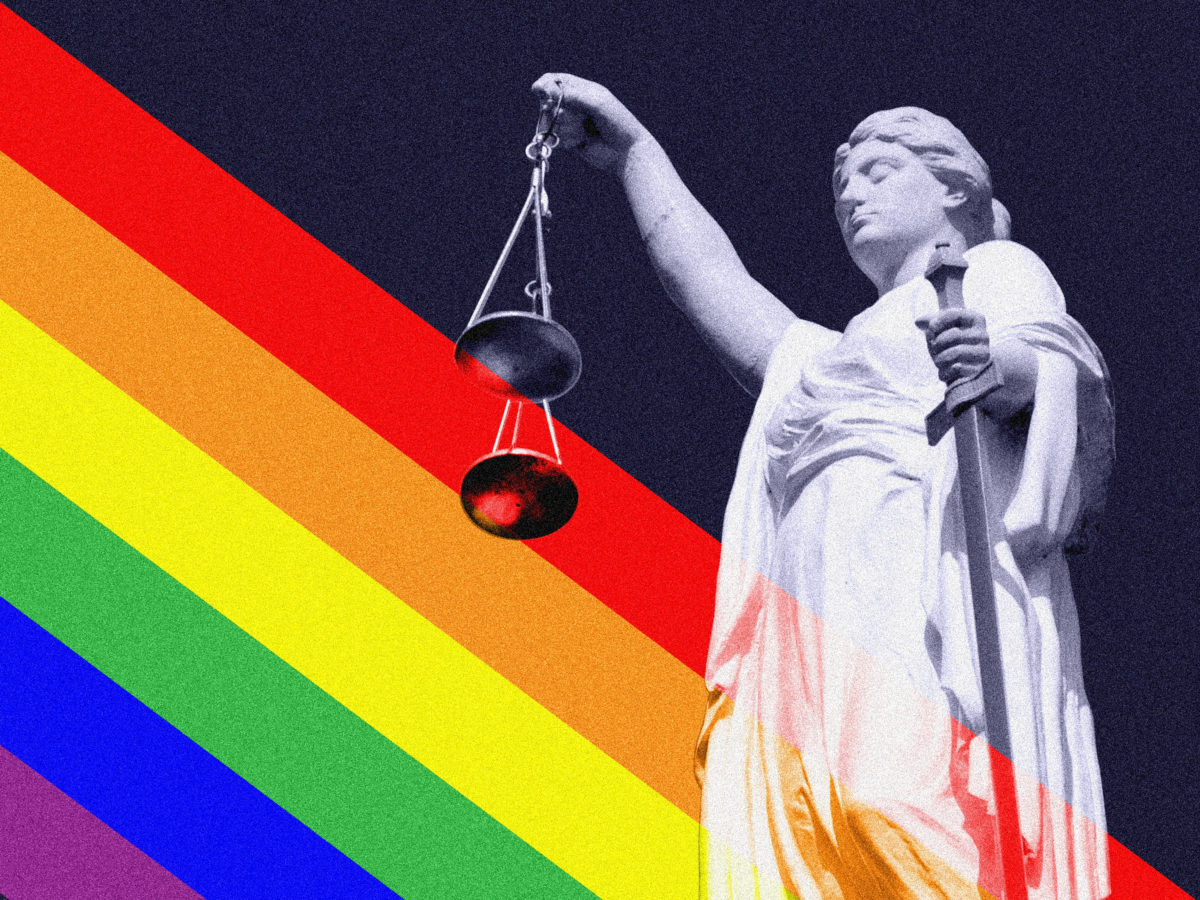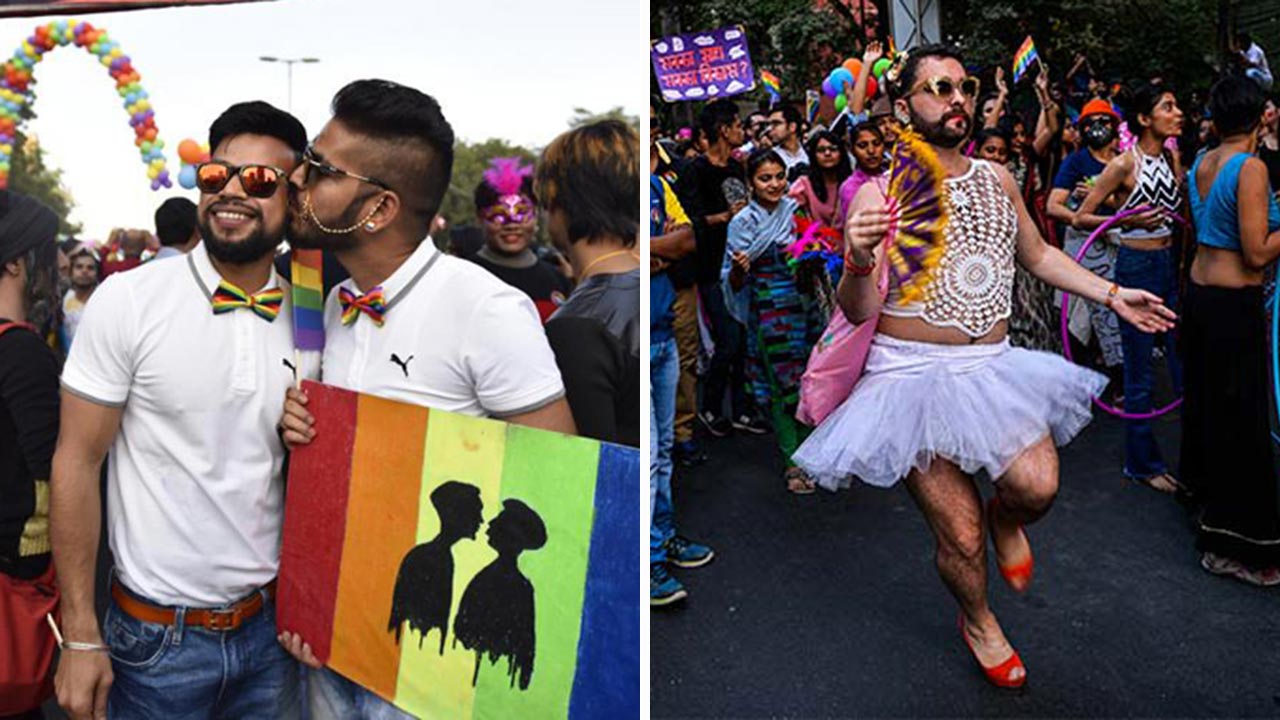2023 And Same-Sex Marriage: How India Evolved Till Now
Same-Sex Marriage is a major case supreme court of India is recently dealing with. After the decriminalization of Sec. 377 IPC it is important to understand the scope of legal rights of LGBTQ community.

The Supreme Court’s Take on Same-Sex Marriage in India –
The Supreme Court of India has been at the forefront in the issue of same-sex marriage. While homosexuality was decriminalized in India in 2018, same-sex marriages are still not recognized under Indian law. The Supreme Court has recently been dealing with this issue, and it has sparked a heated debate across the country.
In September 2018, a five-judge bench of the Supreme Court, headed by then Chief Justice Dipak Misra, delivered a historic judgment decriminalizing homosexuality. The bench struck down Section 377 of the Indian Penal Code, which criminalized sexual activities “against the order of nature”. The judgment was widely celebrated by the LGBTQ+ community and activists, who had been fighting for their rights for years.

However, the issue of same-sex marriages was not addressed in the 2018 judgment. Same-sex couples in India cannot legally get married, and are not entitled to any of the rights and benefits that come with marriage, such as inheritance, adoption, and tax benefits. This has led to a situation where many same-sex couples live in fear of being ostracized by society, and being denied basic rights and privileges.
The Supreme Court is now hearing a petition filed by two women, who are seeking recognition of their marriage under Indian law. The petitioners, Aruna Goyal and Pushpa, were married in Canada in 2019, and they are now seeking recognition of their marriage in India. The case is being heard by a two-judge bench of the Supreme Court, comprising Justices R.F. Nariman and B.R. Gavai.
The petitioners argue that denying same-sex couples the right to marry is a violation of their fundamental rights, as guaranteed under the Indian Constitution. They contend that marriage is a basic human right, and that denying this right to same-sex couples is discriminatory and unconstitutional. The petitioners also argue that denying same-sex couples the right to marry violates India’s obligations under international law, as several countries have legalized same-sex marriages.

The government of India, however, has opposed the petition, arguing that marriage in India is a union between a man and a woman, and that this has been the tradition and culture of the country for centuries. The government has also argued that allowing same-sex marriages would have “far-reaching implications” for society, and that it should be left to Parliament to decide on the issue.
The case is still ongoing, and it remains to be seen what the final outcome will be. However, the fact that the Supreme Court is hearing the case is a positive development, and it shows that the issue of same-sex marriages is being taken seriously by the judiciary. It is also a reflection of the changing attitudes towards homosexuality in India, and the growing recognition of the rights of the LGBTQ+ community.
Overall, the issue of same-sex marriages in India is a complex and sensitive one, and it raises several legal, social, and cultural questions. The Supreme Court’s handling of the case will have far-reaching implications for the future of the LGBTQ+ community in India, and it will be closely watched by people across the country. Whatever the outcome, it is clear that this is a historic moment for India, and it will shape the country’s future in profound ways.
The concept of gender, biological sex and its relation to Same-Sex marriage –
Gender is a social construct that refers to the roles, behaviors, and attributes that a particular society considers appropriate for men and women. Biological sex, on the other hand, refers to the physical and physiological characteristics that distinguish males from females, such as genitalia, reproductive organs, and hormone levels.

In recent years, there has been a growing awareness of the diversity of gender identities and expressions, beyond the traditional binary categories of male and female. Some people may identify as transgender, non-binary, or genderqueer, for example, and may not conform to societal expectations of what it means to be a man or a woman.
The same-sex marriage case and the Supreme Court of India –
The case pertains to a petition filed by two women, who are seeking recognition of their marriage under the law. The petitioners argue that the denial of recognition to same-sex marriages violates their fundamental rights under the Constitution of India, including the right to equality, non-discrimination, and dignity.
The petition was initially heard by a two-judge bench, which referred the matter to a larger bench to consider the constitutional validity of Section 377 of the Indian Penal Code, which criminalized consensual sexual acts between same-sex adults. In a landmark judgment in 2018, the Supreme Court struck down Section 377, holding that it violated the constitutional rights of LGBT individuals.
The current case is being heard by a larger bench, which is considering the broader question of whether same-sex marriages should be recognized under the law. The hearings are ongoing, and various parties, including the petitioners, the government, and other stakeholders, are presenting their arguments on the issue.
The outcome of the case will have significant implications for the rights of LGBT individuals in India, and for the recognition of same-sex relationships under the law. It remains to be seen what the final judgment will be, but it is expected to be a landmark decision that will shape the legal landscape of LGBT rights in India for years to come.
The two women who filed the petition seeking recognition of their marriage under the law are being accompanied by Navtej Singh Johar and Sunil Mehra. They are not women, but two men who are in a long-term committed relationship.
Navtej Singh Johar is a well-known Bharatanatyam dancer and a prominent LGBT rights activist. He was one of the petitioners in the case that led to the landmark 2018 judgment of the Supreme Court that struck down Section 377 of the Indian Penal Code, which criminalized consensual sexual acts between same-sex adults.
Sunil Mehra is a journalist and has been in a relationship with Navtej Singh Johar for several years. The couple filed the petition seeking recognition of their marriage under the law, arguing that the denial of recognition violated their fundamental rights under the Constitution of India, including the right to equality and non-discrimination.

While the current case on the recognition of same-sex marriages is distinct from the case that led to the decriminalization of Section 377, the two cases are closely related in terms of their implications for LGBT rights in India. Both cases have the potential to reshape the legal landscape of LGBT rights and recognition in India, and have been closely watched by LGBT activists and advocates around the world.
Countries which recognize same-sex marriage –

- Argentina: Same-sex marriage has been legal in Argentina since 2010, and same-sex couples have the same rights as opposite-sex couples in terms of adoption, inheritance, and other legal matters.
- Australia: Same-sex marriage was legalized in Australia in 2017, following a national postal survey in which a majority of Australians voted in favor of the change. Same-sex couples now have the same legal rights as opposite-sex couples, including adoption rights.
- Colombia: Same-sex marriage was legalized in Colombia in 2016, following a ruling by the country’s Constitutional Court. Same-sex couples have the same legal rights as opposite-sex couples, including adoption rights.
- Denmark: Same-sex marriage has been legal in Denmark since 2012. Same-sex couples have the same legal rights as opposite-sex couples, including adoption rights.
- France: Same-sex marriage was legalized in France in 2013, following months of protests and political debate. Same-sex couples have the same legal rights as opposite-sex couples, including adoption rights.
- Germany: Same-sex marriage was legalized in Germany in 2017, following a vote in the country’s parliament. Same-sex couples have the same legal rights as opposite-sex couples, including adoption rights.
- Ireland: Same-sex marriage was legalized in Ireland in 2015, following a national referendum in which a majority of Irish voters approved the change. Same-sex couples have the same legal rights as opposite-sex couples, including adoption rights.
- Netherlands: The Netherlands was the first country in the world to legalize same-sex marriage, in 2001. Same- sex couples have the same legal rights as opposite-sex.
It is important to note that the recognition of same-sex marriage varies widely around the world, with some countries granting full marriage rights to same-sex couples, while others only recognize civil unions or domestic partnerships. In many countries, same-sex relationships are still criminalized or discriminated against, highlighting the ongoing struggle for LGBT rights and equality globally.
Ultimately, the decision on whether or not to legalize same-sex marriage in India is up to the Supreme Court, Indian government and its citizens. It is a complex and often controversial issue that requires careful consideration of the rights and values of all members of society.




